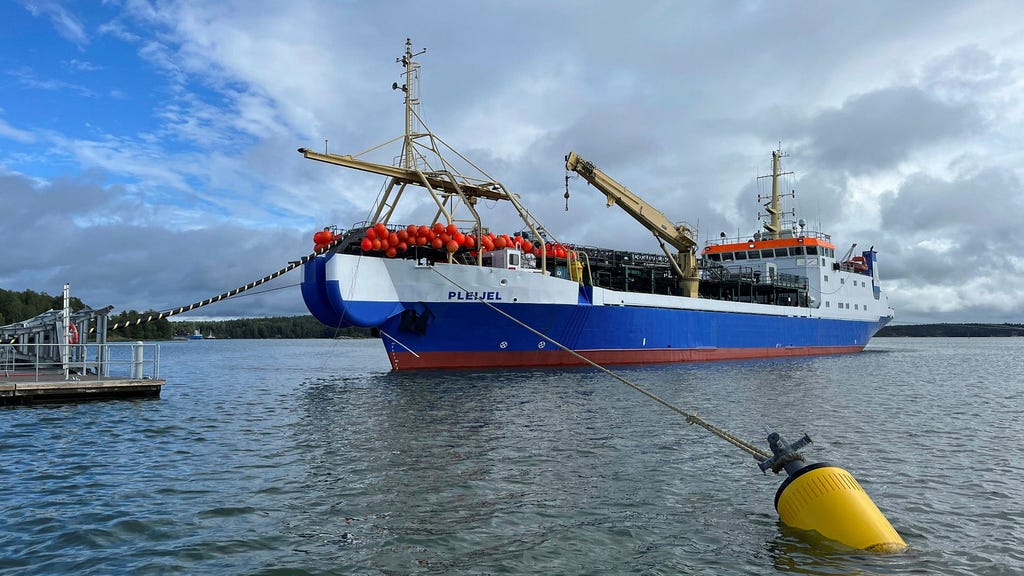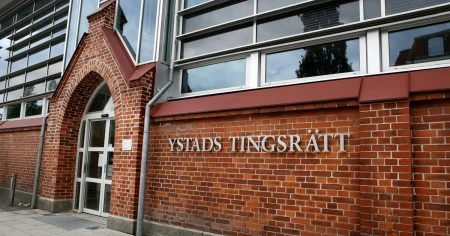The incident involving the Chinese vessel Yi Peng 3, suspected of damaging data cables in the Baltic Sea in November 2024, highlighted the vulnerability of critical undersea infrastructure and the importance of specialized repair capabilities. The Swedish company Baltic Offshore, owner of the cable-laying vessel C/S Pleijel, played a key role in repairing the damaged cable between Sweden and Lithuania. The repair process typically involves dredging up the damaged cable, removing the affected section, and splicing in a new segment. While fiber optic cable repairs are relatively straightforward, repairing power cables is a more complex and costly undertaking.
The C/S Pleijel, unique as the only Swedish-flagged cable-laying vessel, underscores a broader issue within the Swedish maritime sector. While Baltic Offshore owns another cable-laying vessel, the Nordkabel, it operates under the Norwegian flag due to discrepancies in maritime support policies between the two countries. Specifically, Sweden’s interpretation of EU maritime state aid regulations only provides financial support for vessels actively in traffic, not those on standby, unlike Denmark and Norway. This disparity creates a competitive disadvantage for Swedish companies like Baltic Offshore, potentially hindering their ability to maintain a readily available repair capacity crucial for national security and infrastructure resilience.
The vulnerability of submarine cables, highlighted by the Nord Stream pipeline explosions and the subsequent cable incidents, raises concerns about potential disruptions to vital communication and power links. With approximately 30 data and power cables connecting to the Swedish mainland, the need for domestic repair capabilities is paramount. Having Swedish-flagged vessels ensures their availability for national needs, including defense purposes during times of crisis. The Swedish Armed Forces can also provide protection for these vessels in international waters during peacetime, another advantage of national flagging.
Incentivizing Swedish companies to maintain a nationally flagged fleet within the specialized maritime sector requires policy adjustments. Economic factors, such as tonnage tax and the taxation of onboard personnel, often drive Swedish shipping companies to register their vessels in other countries with more favorable regulations. This puts Swedish companies at a competitive disadvantage, particularly in specialized areas like cable laying. Harmonizing Swedish regulations with those of neighboring countries like Denmark and Norway, which offer more comprehensive support for vessels in standby mode, is crucial for ensuring a robust and readily available national capability to respond to critical infrastructure incidents.
Addressing this issue requires a multi-agency approach involving the Swedish Armed Forces, Coast Guard, Transport Agency, and Tax Agency. A joint effort to review and revise existing policies is necessary to create a level playing field for Swedish maritime companies and encourage the operation of Swedish-flagged vessels in specialized sectors. This collaborative effort should focus on ensuring the security of essential services like power supply and communication while simultaneously promoting the growth of the Swedish maritime sector, particularly in specialized areas vital for national infrastructure resilience.
The series of cable incidents in the Baltic Sea, including the damage to the Estlink 2 power cable in December 2024 and the suspected involvement of Chinese vessels, serves as a stark reminder of the importance of maintaining a robust and readily available domestic capacity for repairing critical undersea infrastructure. The situation calls for immediate action to address the policy discrepancies that discourage Swedish flagging of specialized vessels, ensuring Sweden’s ability to respond effectively to future incidents and safeguard its vital communication and power links.














